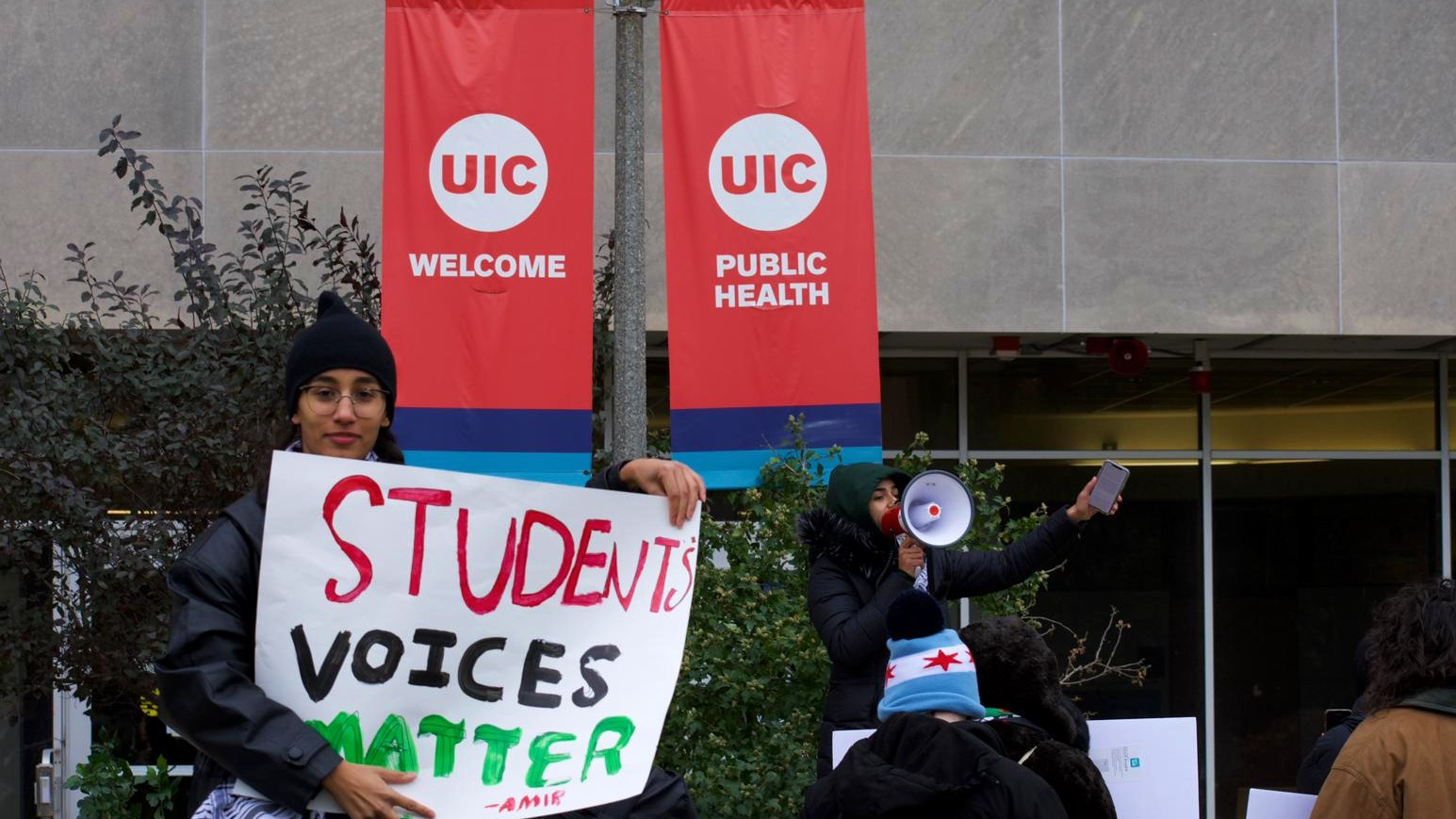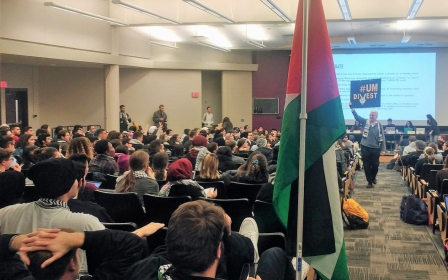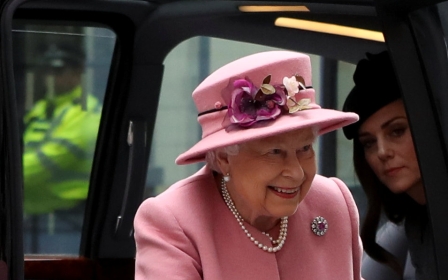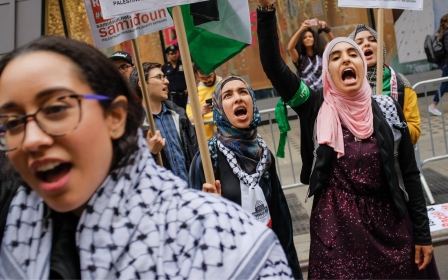Palestinian students file federal complaint alleging discrimination at University of Illinois
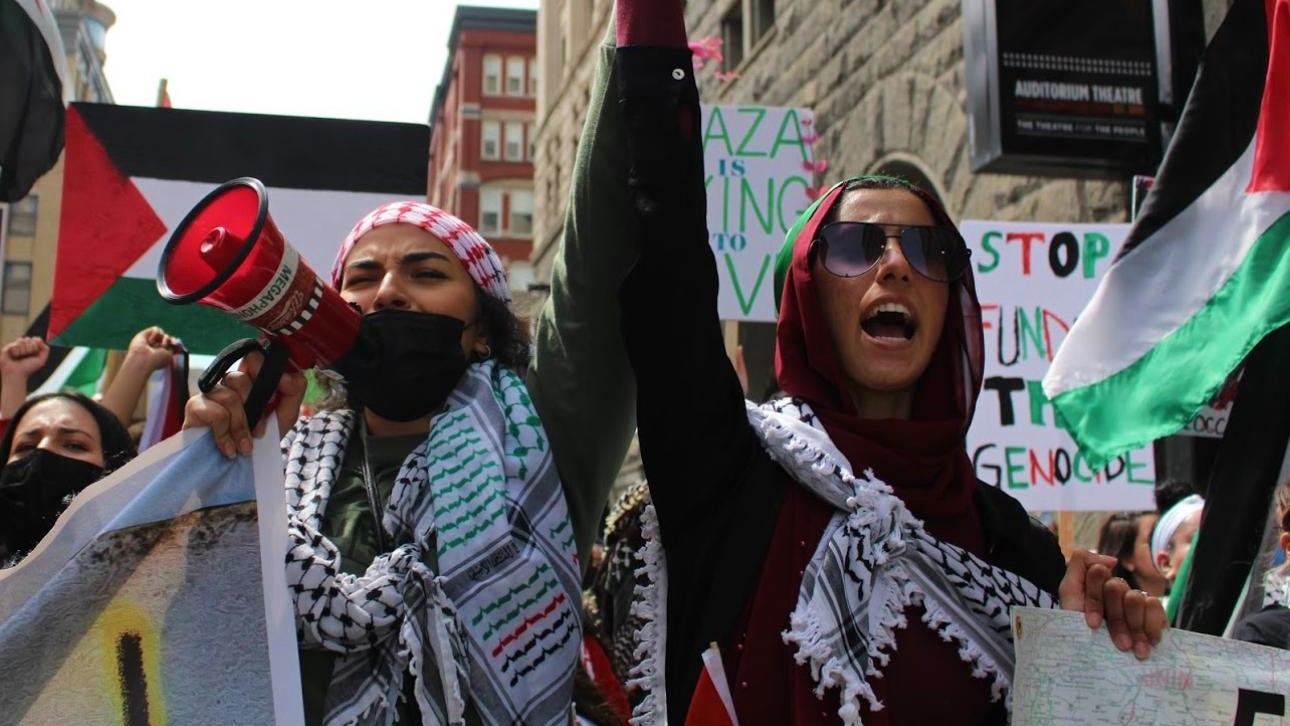
In late January, Salaam Khater and several other Palestinian students at the University of Illinois Chicago (UIC) registered for a virtual event hosted by the Study Abroad Office (SAO) about a new summer programme to be held in Israel.
The website promoted the event as being open to the wider student community, describing it as an opportunity “to learn more about how you can immerse yourself in new cultures, music, dance, and food while enriching your UIC academic experience”.
When the online event began on 23 January, Khater and five other Palestinian students who wanted to tune into the event, ask questions and raise concerns about a study abroad trip to Israel, found that they were not being admitted into the virtual event.
Others already in the session, relayed the message to organisers that there were six people waiting to join the event.
They were assured that the delay was due to "technical issues" and a new Zoom link was issued. But they remained in the waiting room. Suspecting that they were not being allowed into the event because of their Arab names, Salaam Khater changed her name to "Rebecca".
New MEE newsletter: Jerusalem Dispatch
Sign up to get the latest insights and analysis on Israel-Palestine, alongside Turkey Unpacked and other MEE newsletters
Jenin Alharithi, another Palestinian student, who was also waiting, took on the avatar "Haley".
"We were quickly admitted into the Zoom call," Khater told Middle East Eye.
When it was time for the Q&A, and the students asked about what it would be like for Palestinians to go on such a trip, the students said their questions were dismissed and they were muted.
Targeting Palestinians
The incident last January is the subject of a new civil rights complaint with the US Department of Education’s Office for Civil Rights (OCR), led by Palestine Legal, the organisation that protects the constitutional and civil rights of Americans who speak up for Palestinian freedom.
In its submission, Palestine Legal alleges that the UIC singled out and excluded six Palestinian students from attending a virtual university-sponsored event in what amounted to deliberate targeting of Palestinian students at the university. Three students were eventually admitted with different names, while three others who had kept their names remained excluded, the complaint said.
A Jewish student, part of Students for Justice in Palestine (SJP), was also censored during the incident, and Palestine Legal is representing this student, too.
The complaint calls on the Department of Education to investigate UIC’s violation of Title VI of the Civil Rights Act of 1964, 42 U.S. Code § 2000d, which protects students from discrimination on the basis of race, colour, or national origin.
Zoha Khalili, a lawyer at Palestine Legal, told MEE they pursued this course of action after student efforts to document and report it through the proper channels at the university had not yielded any action on the part of the administration.
"This is a repeated issue at the UIC," Khalili from Palestine Legal said.
Three Palestinian students at UIC told MEE that the incident last January was part of a larger, inherent bias against Palestinian students at the university.
In 2021, for instance, students belonging to SJP had their chat functions disabled and were kicked out of a university Zoom session for posting questions about Israel’s rollout of Covid-19 vaccines to Palestinians living under Israeli occupation.
When the students issued a complaint, the discrimination office ruled that the censorship was warranted because students had engaged in "text shouting" in the chat.
According to Palestine Legal, it is this incident that "left the door open to the even more egregious censorship that took place in January 2023".
Another student, Soha Khatib, who was also excluded from January's session, said there was an inherent refusal from the university to engage with their concerns even though Palestinians were part of the larger student community.
She told MEE that they felt they were being penalised for raising questions about the university's decision to platform Israeli government officials or to run study abroad trips to Israel.
"If it was 1993, they wouldn't bring a spokesperson from apartheid South Africa. Or they wouldn't bring a representative of Russia. But when we raise our concerns about what is happening in Palestine, we are penalised," Khatib said.
"It's just a constant routine of treating Palestinian students differently; treating the entire issue of Palestine as something that doesn't matter, even though Palestinian students make up such a large population of our university," Khatib added.
A spokesperson for the UIC told MEE that the university had "neither received formal notification of a complaint filed with the Department of Education Office of Civil Rights (OCR), nor any specific details regarding its nature or content."
"To maintain a fair and impartial process, the university refrains from commenting on matters related to ongoing investigations, including those initiated by the OCR. We take all allegations of civil rights violations seriously and will fully cooperate with any inquiries that may arise from a complaint," the spokesperson added.
Pro-Palestine speech in academia
For decades, students and academics who choose to speak on Palestine at university campuses have been targeted by Zionist and right-wing groups in the US.
Students, activists, and scholars who criticise Israel or express pro-Palestine views are routinely placed on blacklist sites like Canary Mission and Campus Watch, and accused of antisemitism or supporting terrorism. Several university students have previously told MEE that the possibility of being named on such sites often iced their activism, as it meant consequences for potential job opportunities or upward mobility at the university.
In 2023 alone, there have been a series of attempts to censor academics and other individuals critical of Israel on US campuses.
In January, former Human Rights Watch executive director Kenneth Roth was denied a fellowship position at Harvard University in what was widely seen as retaliation for his work and views on Israel.
After a wave of outrage, Roth was finally offered the fellowship.
In August, Zionist groups at Princeton University in New Jersey tried to intimidate a professor at the Near East studies department into dropping a book called The Right to Maim: Debility, Capacity, Disability from her syllabus.
The issue escalated when Israel's minister of diaspora affairs sent a letter to Princeton's president, Christopher Eisgruber, urging him to have the book removed. He also called for a review of all teaching materials at the university.
The book, written by Jasbir Puar and published by Duke University Press, argues that Israel intentionally maims Palestinians as a method of controlling Palestinians. Several hundred students and alumni of Princeton subsequently signed a petition in support of the professor keeping the book in her syllabus.
Khalili, from Palestine Legal, told MEE that her organisation hoped that by taking the incident to the federal level, it would lead to accountability.
"We hope by taking it to the federal level, it will force universities to enforce its own anti-discrimination policies towards creating an atmosphere in which Palestinians, and all students, feel more able to, not only have equal access to university programmes, but their experience of discrimination heard and investigated."
Over the past nine years, Palestine Legal has responded to more than 2200 incidents of suppression of Palestinian rights advocacy, many involving harassment and censorship attempts by university administrations as well as right-wing organisations attempting to intimidate Palestinian voices and experiences.
Middle East Eye delivers independent and unrivalled coverage and analysis of the Middle East, North Africa and beyond. To learn more about republishing this content and the associated fees, please fill out this form. More about MEE can be found here.


